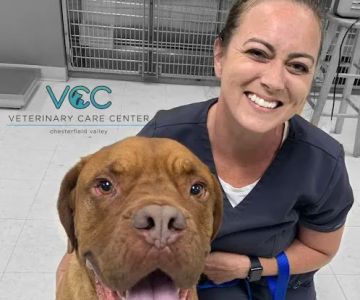What GPA Do You Need to Become a Veterinarian? A Guide for Aspiring Vets
Becoming a veterinarian is a dream career for many, but it's also a challenging and competitive path to follow. One of the key questions aspiring veterinarians often ask is, "What GPA do I need to become a veterinarian?" The GPA, or grade point average, is an important factor in your veterinary school application, and understanding the academic requirements can help set you up for success in this rewarding profession. As someone who’s navigated this journey, I’ll walk you through the steps you need to take to boost your chances of admission into veterinary school.
1. Understanding the GPA Requirements for Veterinary School
The first thing to know is that every veterinary school has its own specific GPA requirements. However, as a general guideline, most veterinary schools in the United States require a minimum GPA of around 3.0 to 3.5 for admission. That means that achieving a GPA within this range is crucial, but it’s important to note that a higher GPA will improve your chances, especially in the more competitive schools.
For example, top veterinary schools such as Cornell University and the University of California, Davis, often have average GPAs for admitted students above 3.5, with some schools even seeing average GPAs closer to 3.7 or 3.8. Achieving a GPA above 3.5 can certainly give you a competitive edge when applying to these programs.
2. The Importance of Prerequisite Courses
In addition to your overall GPA, veterinary schools also look at the grades you’ve received in your prerequisite courses. These include courses in biology, chemistry, physics, mathematics, and animal science. Excelling in these subjects is important because veterinary schools expect you to have a strong foundation in the sciences to succeed in their rigorous curriculum.
I remember how crucial it was for me to perform well in these courses, especially organic chemistry and biology, which are core subjects for any aspiring veterinarian. Veterinary schools often place significant weight on these grades, and a strong performance in these courses can help offset a less-than-perfect overall GPA.
3. Extracurricular Activities and Experience Matter
While your GPA is an essential factor, it’s not the only thing that veterinary schools consider. Schools also want to see that you have practical experience working with animals. This could include volunteering at animal shelters, internships, or working as a veterinary assistant. Gaining hands-on experience with animals not only helps you build the skills necessary for the job but also demonstrates to veterinary schools that you’re truly committed to the profession.
In my own experience, volunteering at a local animal shelter was an invaluable part of my journey. It gave me the opportunity to work directly with animals, gain insight into the daily responsibilities of a veterinarian, and establish connections with professionals in the field. This experience not only strengthened my resume but also made me more confident in my decision to pursue veterinary medicine.
4. The Role of Research and Letters of Recommendation
In addition to your GPA and hands-on experience, veterinary schools also look for evidence of your research abilities and strong recommendations from professors or veterinarians. Research experience can showcase your ability to think critically and apply scientific methods to solve problems—skills that are essential for a veterinarian. Furthermore, letters of recommendation from veterinarians you’ve worked with or professors who know you well can make a significant impact on your application.
When I applied to veterinary school, I made sure to establish meaningful relationships with my professors and supervisors during my internships. Their letters of recommendation highlighted not only my academic abilities but also my passion for the field. These letters were key in helping me stand out as an applicant.
5. Standardized Test Scores: Do They Matter?
While standardized test scores, such as the GRE (Graduate Record Examinations), are often required for veterinary school applications, they typically hold less weight than your GPA and experience. Some veterinary schools may waive the GRE requirement, while others may have specific score thresholds.
It’s important to check with the schools you're interested in to understand their specific testing requirements. If the GRE is required, you’ll want to prepare thoroughly, but don't worry if you don’t have the perfect score. Many schools prioritize overall experience and your academic record over standardized test performance.
6. How to Improve Your GPA if It’s Below Average
If you’re concerned that your GPA might not be as high as it should be, don’t panic. There are several ways to improve your academic standing and increase your chances of getting into veterinary school. First, focus on performing well in your remaining courses. Showing a strong upward trend in your grades can help offset a lower GPA from earlier years.
Additionally, consider taking extra coursework, such as summer classes or online courses, to strengthen your academic record. Many students also find that gaining additional animal-related experience, working in a related field, or participating in research projects can help boost their application, even if their GPA is a bit lower than average.
Conclusion: Achieving Your Dream of Becoming a Veterinarian
In conclusion, becoming a veterinarian is a challenging but rewarding goal that requires dedication and hard work. While the GPA required for veterinary school varies by program, achieving a strong GPA in your core science courses, gaining relevant experience, and building relationships with mentors are all critical steps in the process.
Remember that while GPA is important, it’s not the only factor in your application. Veterinary schools want to see that you’re passionate about animal care, have hands-on experience, and are prepared for the rigorous coursework ahead. With determination, a solid academic plan, and a commitment to gaining experience, you’ll be well on your way to achieving your dream of becoming a veterinarian.











